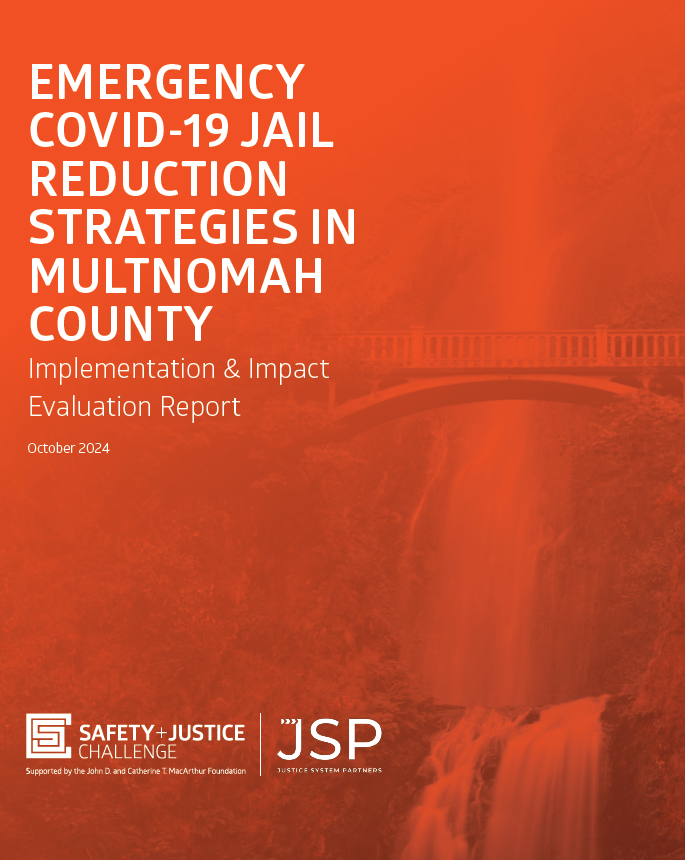All Resources

Emergency COVID19 Jail Reduction Strategies - Implementation & Impact Evaluation
Sarah Jensen, Shannon Magnuson
In response to the COVID-19 pandemic, jails across the U.S. implemented emergency measures to reduce populations and mitigate virus transmission. Multnomah County, Oregon, reduced jail bookings by 50% during this time by implementing several key strategies. These efforts were informed by the county’s participation in the Safety and Justice Challenge (SJC), which encouraged collaboration among stakeholders to implement innovative approaches to reducing the jail population.
To examine the impacts of these strategies, Justice System Partners (JSP) conducted a mixed-methods case study of Multnomah County. The study explored how these measures affected jail population trends, bookings for violent crimes, and perceptions of safety. The study found that Multnomah County’s jail population reductions did not lead to increases in crime, challenging narratives linking reforms to higher criminal activity. Most individuals with previous jail bookings were not re-incarcerated during COVID, and there was not an increase in bookings for violence-related charges, even among those with histories of violence. While community members and staff reported feeling unsafe, those concerns were related to COVID-19, changes in policing practices, and visible social disorder, rather than to violent crimes. These findings underscore the effectiveness of jail reduction strategies and the potential of sustainable reforms post-pandemic.
